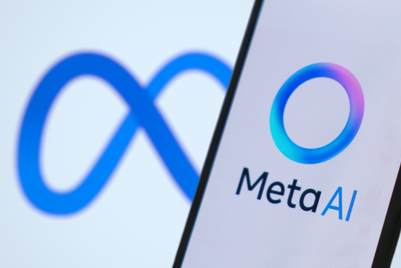
With brands increasingly focusing on the Gen Z consumer base, the challenge lies in driving engagement in a diluted and dopamine-filled marketing landscape. To navigate this, brands must adopt new strategies that effectively engage this crucial segment.
Recently, for a partnership with Calvin Klein Asia, our brand introduced a size-finder tool on their ecommerce site to reduce returns and improve customer experience.
There is immense pressure on brands today to deliver high-performing experiences at scale with limited turnaround time. Traditionally, the industry standard for digital campaigns has been bespoke projects. Reflecting on our experience of building over 200 bespoke digital projects, one thing became clear: The lead time from ideation to launch was too long. Typically, it takes two to three months to launch bespoke campaigns, and there is a need for a better solution for brands to increase their campaign output while maintaining quality and creativity.
This realisation led to the development of ready-to-deploy (RTD) creative tools. These tools enable brands to launch campaigns quickly while retaining a degree of creative freedom. From size-finder tools to interactive quizzes and location-based check-ins, brands can now create experiences that resonate with Gen Z and build them at speed. This shift is not just a reaction to changing technologies, but a proactive move to better understand and engage with consumers. With AI integration, there is huge potential in automating RTDs on the creative layer, making high-performing experiences scalable.
RTDs also provide massive conversion benefits, however without a proper data framework, they still lack the insights to show success levels and suggested next steps. Data is king, yet brands often face issues with siloed infrastructures. These challenges can be costly, leading to missed opportunities. This is where unified data frameworks come in, making sense of data across all channels so brand owners can make better decisions.
According to a study by Innovid, more than 51% of brand marketers consider third-party cookies ‘very important’ for marketing strategy. However, the impending phase-out of third-party cookies by 2024 due to privacy concerns marks a pivotal moment for brands. Marketers must now find a reliable data framework to replace third-party cookies. First-party data aggregation is becoming increasingly essential.
First-party data, gathered directly from customer interactions, offers unparalleled accuracy and depth compared to third-party data. This includes data from RTDs, website visits, purchases, and more. First-party data allows brands to create meaningful engagement with Gen Zs and serves as a reliable measure of brand-consumer relationships and marketing effectiveness.
The shift towards data-driven experiences is not just a trend but is shaping the future of brand-consumer interactions. Brands that leverage unified data dashboards and utilise RTDs will be better positioned to meet evolving consumer expectations. This approach enhances marketing and product strategies and fosters meaningful connections with Gen Z customers.
Donavan Ratnasingam (L) and Jason Ang (R) are the co-founders of CONTEN.T.




.jpg&h=334&w=500&q=100&v=20250320&c=1)




.jpg&h=334&w=500&q=100&v=20250320&c=1)



.jpg&h=268&w=401&q=100&v=20250320&c=1)
.jpg&h=268&w=401&q=100&v=20250320&c=1)
.jpg&h=268&w=401&q=100&v=20250320&c=1)

.png&h=268&w=401&q=100&v=20250320&c=1)
.jpg&h=268&w=401&q=100&v=20250320&c=1)
.png&h=268&w=401&q=100&v=20250320&c=1)
